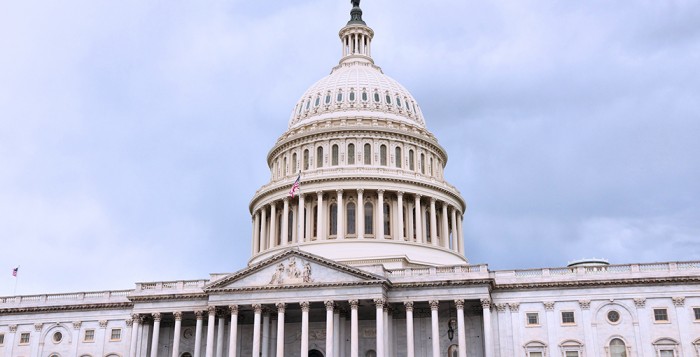OMHSAS Stakeholder Webinar October 17
The Office of Mental Health and Substance Abuse Services (OMHSAS) October 2023 Stakeholder Webinar is currently scheduled for Tuesday, 10/17/23 from 1:00 pm – 2:00 pm.
Please register here to participate. After registering, you will receive a confirmation email containing information about joining the webinar.
Call-in Number: 631-992-3221 • Access Code: 332775346#
Please contact RCPA Mental Health Services Director Jim Sharp with any questions.
Gov. Shapiro Signs Executive Order Creating Behavioral Health Council
On Tuesday, Governor Josh Shapiro signed an executive order to create a Behavioral Health Council. The council aims to bring together state leaders, local governments, and community providers to develop a statewide action plan to address any gaps in access, affordability, or delivery of services, with the goal of removing silos across state agencies, health care providers, payers, state and local government sectors, and decreasing the wait time for services for Pennsylvanians in need.
Charged with setting the agenda for behavioral health under the Shapiro Administration, the council will be comprised of 33 members and include a diverse array of stakeholders with representation from state, county, and local governments, the provider community, advocacy groups, and individuals with lived experiences. A list of Council members is available online.
The executive order also creates an advisory committee that will share with the council industry knowledge, expertise, reports, findings, and feedback from the communities they serve to assist members in their work to improve the delivery of services. Read the complete press release.
Special Report on BH/PH Integration Care Models

On behalf of COMCARE, Pennsylvania’s 67 counties, and their partner Behavioral Health Managed Care Organizations (BH-MCOs), RCPA is pleased to distribute the following report highlighting more than two dozen Integrated Behavioral Health (BH) and Physical Health (PH) Care Models that are available to Pennsylvanians enrolled in Behavioral HealthChoices (BHC), the Commonwealth’s BH managed care program for Medical Assistance consumers. This is considered a “living” document and will be updated with additional models as they are identified.
DEA Issues Extension of Ryan Haight Act through 2024
The Drug Enforcement Agency (DEA) issued a temporary rule extending the allowance for physicians and practitioners to prescribe controlled medications to new patients based on a relationship solely established through telemedicine (live video or telephone for buprenorphine) until December 31, 2024. The extension will give the DEA time to consider permanent changes to their rules around prescribing controlled substances moving forward.
Key concerns from stakeholders expressed during the listening sessions were related to in-person visit requirements, the 30-day prescribing limit in the initially proposed rules, and adding various reporting requirements, such as notating on prescriptions that they were prescribed via telemedicine. The rule itself lists additional reasons the extension is being issued:
- “Prevent a reduction in access to care for patients who do not yet have an existing telemedicine relationship;
- For relationships established both during the COVID-19 PHE and those established shortly after, prevent backlogs with respect to in-person medical evaluations in the months shortly before and after the expiration of the telemedicine flexibilities;
- Address the urgent public health need for continued access to the initiation of buprenorphine as medication for opioid use disorder in the context of the continuing opioid public health crisis;
- Allow patients, practitioners, pharmacists, service providers, and other stakeholders sufficient time to prepare for the implementation of any future regulations that apply to prescribing of controlled medications via telemedicine; and
- Enable DEA, jointly with HHS, to conduct a thorough evaluation of regulatory alternatives in order to promulgate regulations that most effectively expand access to telemedicine encounters in a manner that is consistent with public health and safety, while also effectively mitigating against the risk of possible diversion.
RCPA will continue its advocacy work in partnering with the National Council on Mental Wellbeing to support the flexibility becoming part of reimagined legislation. Also, RCPA will continue its efforts on the current appeal it has filed with the DEA and OMHSAS to provide regulatory clarification on the licensing classification for those provider members who submitted applications for DEA Site Registration to disseminate Controlled Substances under the titled Act of 1970.
If you have questions, please contact RCPA Policy Director Jim Sharp.
PA House Fiscal Code Updates Announced
The PA House of Representatives passed HB 1300 (Fiscal Code) by a vote of 121-82. The Fiscal Code contains language appropriating the $100 million for mental health funding, which follows the recommendations of the Behavioral Health Commission’s recommendations. The Fiscal Code also provides another $34.5 million to expand mental health services, $34 million for workforce initiatives, and over $30 million for criminal justice and public safety.
The House also passed HB 1456, a general appropriations bill. HB 1456 passed by a vote of 115-88. The bill provided new monies of $50 million towards intellectual disabilities and direct support professional (DSP) workforce retention. The bill would also fund $642 million for Penn State University, the University of Pittsburgh (Pitt), and Temple University. While there is good news for the IDD providers in regards to additional workforce funding, the bill was challenged by House Republicans because the Penn State, Pitt, and Temple funding requires a two-thirds (supermajority) vote, which was why the colleges were not funded back in June.
This week, the House also passed a tax code bill and a school code bill.
Despite the flurry of legislative activity on the code bills in the House, the code bills will not have to go to the Senate for a concurrence vote. The code bills passed by the House contain new spending (i.e. IDD workforce retention), and the new spending was not negotiated with the Senate; therefore, the expectation is that because there is not a deal between the House and the Senate on the new spending, the Senate will not concur on the code bills.
The Senate will return to session on Monday, October 16.
CMS Issues FAQ on Medicare Enrollment of MFT/MHC/SUDCs
Prisoners of Pa.’s Secret System of Indefinite Isolation Sue for Release and Damages (Paywalled)
Reminder: Feedback on Waiver and PROMISe Processes Due Monday, October 9

Senator Casey to Introduce HCBS Funding Bill
Pennsylvania Senator Bob Casey, the Chairman of the Special Committee on Aging, will be introducing new legislation on the floor of Senate titled “The Home and Community-Based Services (HCBS) Relief Act of 2023.”
The HCBS Relief Act of 2023 would provide dedicated Medicaid funds to states for two years to stabilize their HCBS service delivery networks, recruit and retain HCBS direct care workers, and meet the long-term service and support needs of people eligible for Medicaid home and community-based services. States would receive a 10-point increase in the federal match (FMAP) for Medicaid for two fiscal years to enhance HCBS. Funds could be used to increase direct care worker pay, provide benefits such as paid family leave or sick leave, and pay for transportation expenses to and from the homes of those being served. The additional funds also can be used to support family caregivers, pay for recruitment and training of additional direct care workers, and pay for technology to facilitate services. The funds can help decrease or eliminate the waiting lists for HCBS in the states.
The HCBS Relief Act of 2023 will be introduced during the fourth week of October with a House companion bill expected to be released in the near future. Please join RCPA in supporting this critical piece of legislation to create a viable and sustainable pathway for HCBS.
If you have any questions, please contact your respective RCPA Policy Director.















